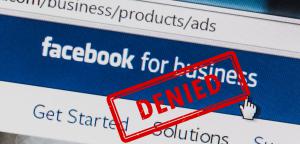Research finds little proof $27 billion advertisers spend on Facebook ads is worthwhile, says publisher Leslie Norins
From 250 Facebook ad case histories and 300 top priority Google articles (from 426 million), little evidence was found that most Facebooks ads are profitable.
Five years after Facebook's IPO, there is still little if any proof ads on Facebook produce profit for anybody but the company, the ad agencies, and the ad consultants.”
NAPLES, FL, UNITED STATES, May 18, 2017 /EINPresswire.com/ -- If “Facebook advertising” were a drug, the FDA would not allow its sale because there is insufficient proof of efficacy, concludes Dr. Leslie Norins, a veteran medical publisher. His 6,100-word report of his six months of research has been published on Analizir.com (www.Analizir.com), an independent website.— Dr. Leslie Norins
“It’s astonishing that exactly five years after Facebook’s IPO, I could not find substantial independent evidence that the billions of dollars spent on Facebook advertising--$27 billion in 2016-- is worthwhile for most advertisers”, he said.
Dr. Norins said that as a publisher with 40-plus years of experience, who originally had trained in medical research with a Nobel prize winner, his curiosity was aroused after testing a few hundred dollars of Facebook ads that produced no results. “I thought there must be big winners, and I just wanted to see how they profited from their ads,” he said.
He first reviewed 250 of the ad “Success Stories” case histories offered on Facebook business’s own web pages. He judged many deficient: fuzzy definitions, unsubstantiated numbers, vague statements, no dollar amounts for resultant revenue or profit, short campaign durations, and mostly small, new, and local companies. Not one ad campaign was reported as being repeated or expanded.
Next, he searched Google ten ways for articles showing Facebook ads produced revenue or profit for advertisers, and 426 million results were retrieved. He studied the 300 ranked highest relevance.
Dr. Norins said most of these articles were sourced to, or written by, consultants and ad agencies that sell advice and services for creating Facebook ads, which he considered a conflict of interest for this research. No article noted that hoped-for revenues and profits are elusive for most Facebook advertisers.
He calculated that if Facebook had spent merely five percent of its $66 billion ad revenue 2013-2016 on ad research, it could have funded $3.3 billion of unbiased, independent studies determining the profit-likelihood of ads for every type of merchandise and service (The largest amount ever spent to authenticate a medium's power for advertisers.). “Then there would not have been these still-unanswered ad questions today,” he says.
Controversially, Dr. Norins wonders whether Facebook's executives and its financial backers actually have been aware of this existential lack of proof that ads seldom produce revenue and profit for advertisers, but are loath to reveal it for fear of deleterious effects on ad revenue and share price.
Dr. Leslie Norins
Analizir.com
239-649-1346
email us here


